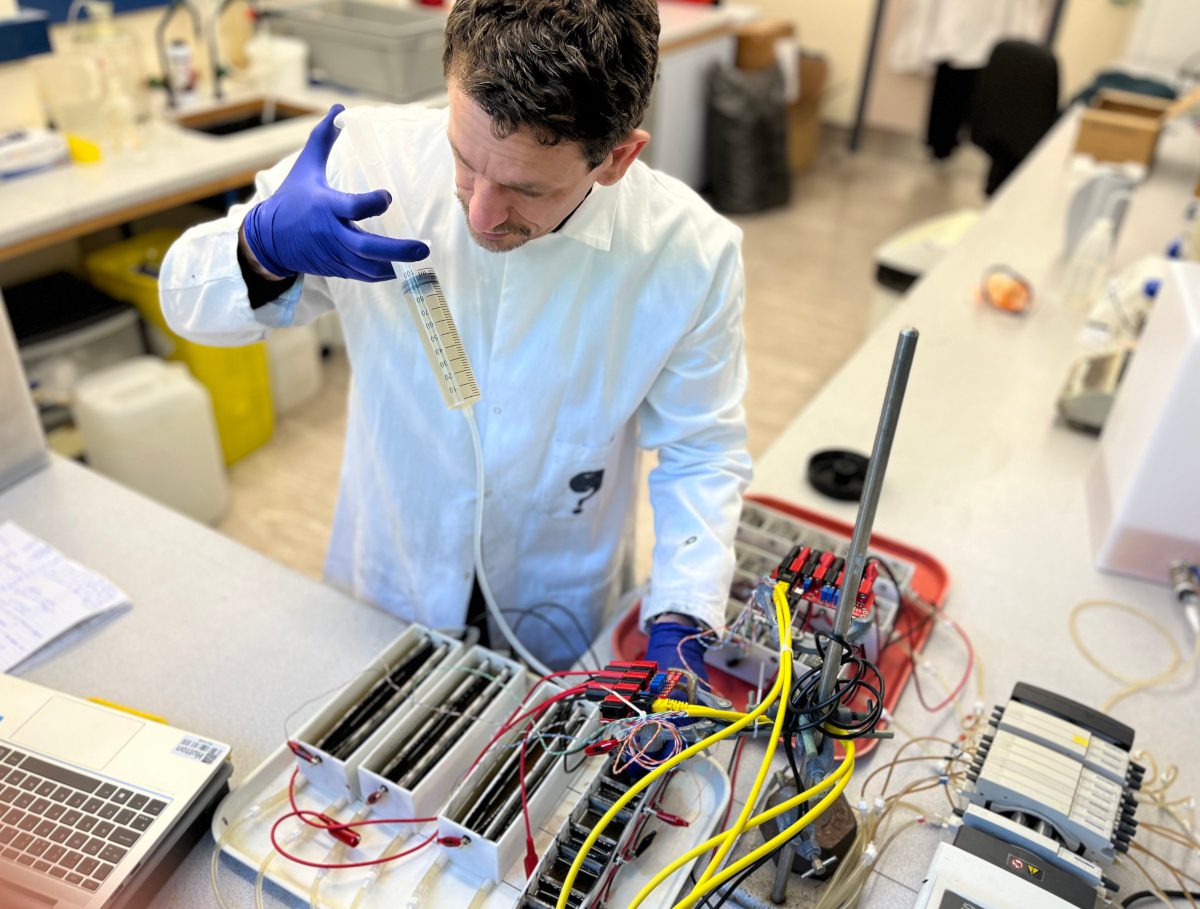
Researchers at The James Hutton Institute are contributing more than simply their grey cells to help in reducing greenhouse gas emissions and energy usage– thanks to a freshly set up urinal.
The otherwise simple center, at the independent research study organisation’s Aberdeen school, is gathering urine from personnel to assist advance a wastewater treatment innovation utilizing power-producing typical microorganisms.
Every day in the UK, more than 11 billion litres of wastewater is dealt with at about 9,000 sewage treatment centers, much of which utilize energy extensive procedures that discharge greenhouse gas emissions, consisting of methane and laughing gas.
However by putting the microorganisms utilized to chomp through wastewater pollutants into an electrical circuit, Hutton scientists have actually revealed that those greenhouse emissions might be cut in half, while likewise producing power.
This might be specifically advantageous in backwoods, where attaining the exact same cut in greenhouse gas emissions would otherwise need considerable financial investment, however likewise in cities, where it might have energy conserving advantages.
Dr Xavier Alexis Walter, the senior scientist leading the task at the Hutton, states, “An approximated 1-3% of the UK’s electrical energy production is utilized in wastewater treatment, primarily in cities where the wastewater needs to be aerated.
” We might possibly reduce this intake considerably by utilizing the natural electro-chemical ability of microorganisms to self-power the procedure. In big cities, where city farming is ending up being more popular– and needed– we might change more energy extensive treatment procedures and likewise modify the procedure to drain nitrogen that can be utilized as fertiliser.”
Dr Walter’s experiments, concentrating on wastewater treatment, need about 3.3 litres of urine daily (an average well hydrated individual circulates 2.2 litres over 24 hr), which is why the urinal has actually been set up.
A kind of the innovation has actually currently been trialled to power lighting in a toilet block at a separated school in Africa, after being effectively trialled over numerous years at Glastonbury Music Celebration, utilizing celebration goers’ urine.
Dr Walter’s most current work, in partnership with Scottish Water and the University of Glasgow, which revealed the procedure might decrease greenhouse gas emissions by 50%, was moneyed by the Hydro Country Chair Research Study & & Development Program, hosted by the University of Stirling through their Driver Fund.
The Driver Fund supplies important pump priming funds to establish evidence of principles, trial and test innovation services and utilize brand-new financing to provide next generation services to support Scottish Water’s aspirations to understand net absolutely no.
Teacher Andrew Tyler FRSE, Scotland Hydro Country Chair at the University of Stirling, states, “As one of our very first Hydro Country Chair Driver Moneyed jobs, following our Crucible on Process Emissions, we are delighted by the research study being provided by Dr Walter. When moneying this task, we were motivated by the possible influence on deal from the double phases and considerable nitrous-oxide mitigation that might be possible. We are happy that Dr Walter’s aspirations are being understood.”
* pb6655-uk-sewage-treatment-020424. pdf (publishing.service.gov.uk)